Keto For Beginners: 12 Best Tips For Starting Your Low Carb Lifestyle
Starting a low carb diet? Use our keto for beginners guide to get started! We’re sharing our 12 best keto tips!
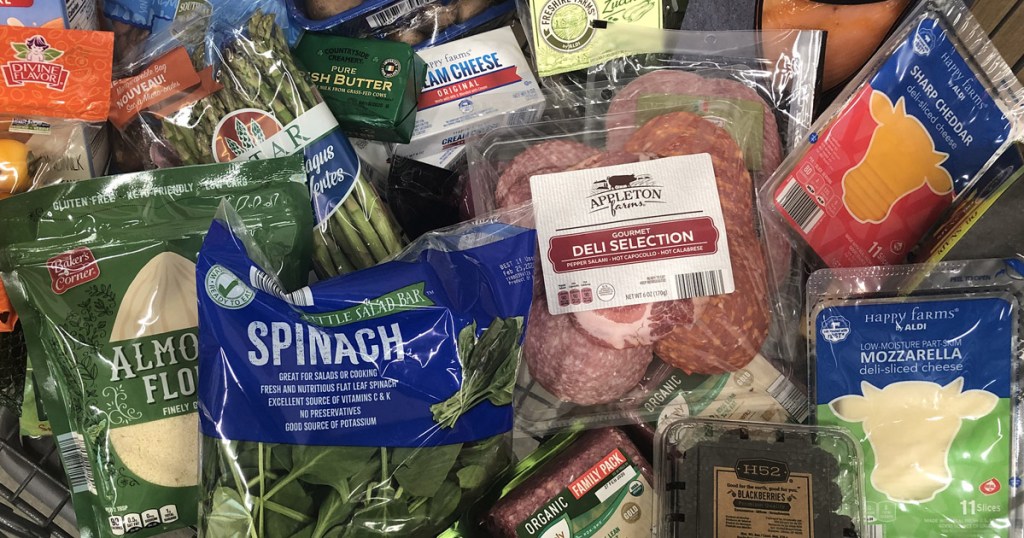
New to the low carb lifestyle? Here’s a guide to keto for beginners!
You’ve seen, you’ve heard, you’ve read, and now you are ready to start living a ketogenic lifestyle. But maybe you’re still feeling a bit overwhelmed about where to begin. Well, guess what?! You’re in the right place!
Below is a quick keto for beginners guide with our top keto tips on how to kick start your low carb journey and tap into that energizing fuel source we call fat.
Go low carb using our Keto for Beginners guide:
Planning and preparation – this is the key to success!
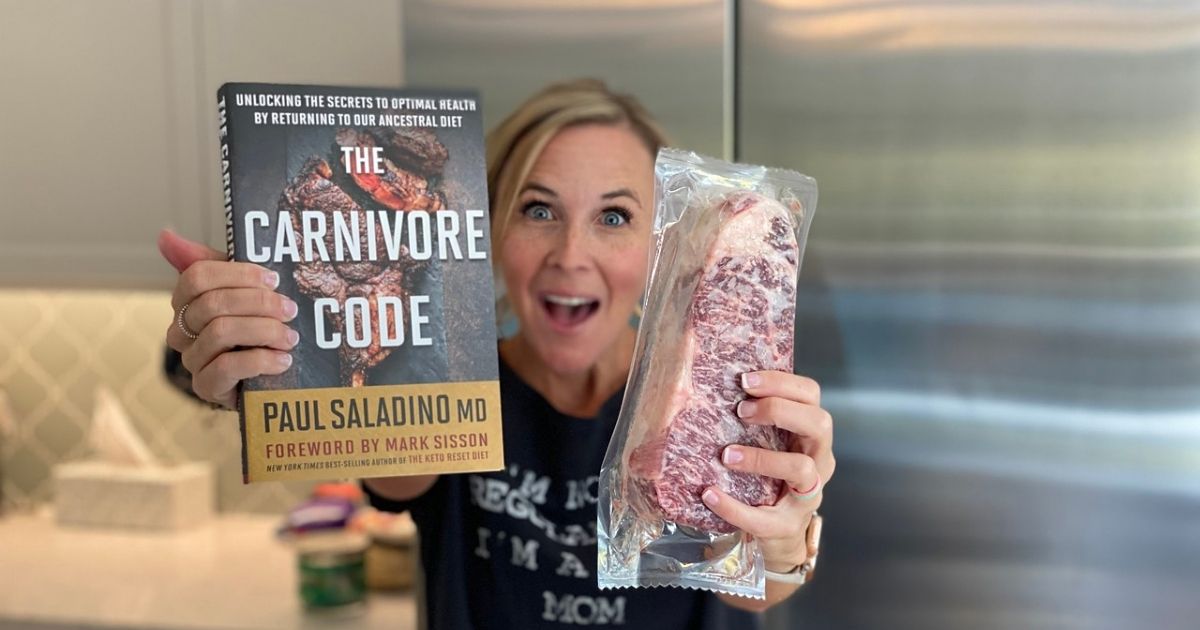
Below are my top keto for beginners tips to get you started on the right path! We’re here to support you on your keto journey.
Know how to read a nutrition label.
Become familiar with nutrition labels. Check serving size, macronutrients (protein, fat, carbs), and the ingredient list. This is a vital tip for beginners starting keto.
Know your macronutrients (aka macros).
Proteins, fats, and carbohydrates are the three macronutrients that provide energy (fuel) to our body and make up the majority of calories in a food or beverage. Whatever macro is most present in a food item will typically determine its classification.
For example, eggs are generally considered a protein source even though they are also a good source of healthy fat and contain a very small amount of carbohydrates.
For more information, see our in-depth post all about what are keto macros.
Cut out sugar.
A good keto for beginners tip is to start eliminating and replacing all foods and beverages that contain sugar, both added and natural sugars. This is a good step in the planning and preparation phase since sugar doesn’t have a place on the keto diet. Natural and added sugars raise blood sugars. With keto, our goal is to keep blood sugars stable so your body switches to burning fat for fuel.
Have a sweet tooth? Check out our guide to keto sweeteners and how to use them in recipes. Keto sweeteners don’t spike blood sugar!
Begin to limit carbohydrates.
Start by trying to avoid carbs as much as possible! Cut the bread, cereal, chips, and French fries out of your life. Some people go cold turkey when cutting carbs and others wean themselves off carbs. At least try to get your carb intake to less than 100 grams a day when you’re in the planning and preparation phase. This is probably the most important keto for beginners tip.
For most people, aiming for less than 40 to 50 grams per day of carbohydrates will put you in a state of ketosis (burning fat instead of carbs). That said, I typically recommend starting at around 20 to 30 grams of carbohydrates per day to jump-start ketosis and then adjust from there. Most people count “net” carbs (total carbohydrates minus fiber minus sugar alcohols).
Eat fats to satiation.
Replace your carbohydrates with healthy, natural fats and protein. If you’re hungry between meals after cutting out carbs, you probably need to include more fat and protein with your meals.
Include protein with meals.
Aim for at least 3 to 6 ounces of protein per meal. Protein plays an important role in keeping you full between meals and helps maintain lean muscle mass. Everyone has a different protein threshold, and highly active people may need closer to 6 to 8 ounces per meal.
Prepare for the “keto-flu”.
Not everyone gets the keto flu, but it’s still good to be prepared. It typically lasts around 1 to 3 days. Fluids and electrolytes are key!
Get optimal sleep.
Good sleep is highly underrated and an important key to health, longevity, and maintaining a healthy weight.
Lack of sleep is associated with increased inflammation which can lead to poor health outcomes. Inadequate sleep is also linked to obesity as it can cause increased hunger and cravings during the day and lower levels of physical activity.
Start developing a good nighttime routine to optimize your quality and quantity of sleep.
Try to minimize stress.
Ongoing stress can result in chronic inflammation and can contribute to weight gain. Try to minimize stress the best you can, especially when first starting a keto diet.
Don’t give up too early!
All too often people give up before getting to the good stuff. Know that the keto-flu will last a few days and that it takes around 2 to 4 weeks to become fully keto-adapted. Hold tight, drink fluids, eat well, and consume electrolytes… you’ll get there! This keto tip for beginners is also very important. If weight loss is your goal, consistency over time is key!
“I keep hearing about macros. How do I track them?”
If you’ve read some of my previous articles, you’ve likely learned that I believe in a life without counting macros. However, when it comes to keto for beginners, tracking can be extremely beneficial as it helps you familiarize yourself with exactly what macros are in the foods you eat.
Here’s a breakdown of where to begin:
- 70-75% calories from fat
- 25-20% calories from protein
- 5-10% calories from carbohydrate
Many of the best keto apps are free and they can help you track calories and macronutrients. I would encourage you once you get the hang of eating keto, try to ditch the calculator and start listening to your body.
Keto for Beginners Quick Start Guide:

What to eat and drink:
- Fats: butter, coconut oil, avocado oil, olive oil, ghee, bacon fat
- Meats: beef, fish, poultry, eggs, lamb, pork
- Full-fat dairy: heavy cream, sour cream, cheese, low-carb yogurt, cottage cheese
- Nuts and seeds: macadamias, walnuts, almonds, pecans, sunflower seeds, pumpkin seeds
- Berries and avocado: all types of berries
- Non-starchy vegetables: all leafy greens and cruciferous — I personally do not count these as part of my carbohydrates
- Sweeteners: Stevia, monk fruit, erythritol, allulose— avoid artificial when possible like sucralose and aspartame
- Fluids: water, coffee, tea
What to limit or avoid:
- Grains: rice, wheat, corn, oats, cereal, bread
- Tubers: potato, yams, some winter squashes
- Sugar: cane sugar, brown sugar, honey, agave, maple syrup, artificial sweeteners like aspartame and sucralose
- Fruit: apples, bananas, oranges, pears, peaches
- Processed and refined foods: chips, crackers, cookies, most snack foods
For more food ideas, check out our extensive keto food list!
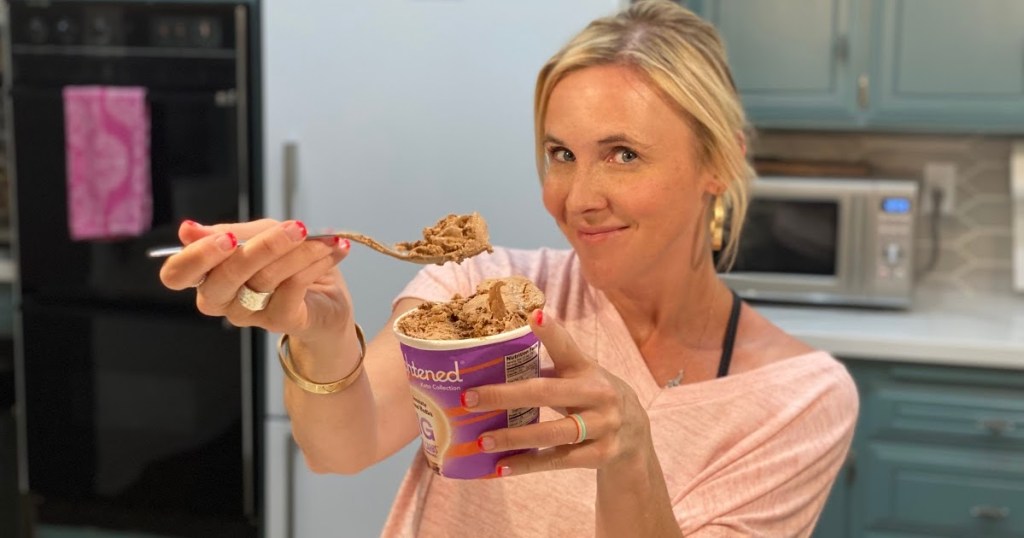
I often remind people that keto is about replacing, not restricting. If you focus on what you can eat and learn how to replace ingredients with keto-friendly versions, you will find that keto isn’t restrictive at all!
Remember, keto is a way of eating and it takes time to learn, so be patient with yourself and know that it gets easier over time. Use these keto tips for beginners to help start your keto journey.
Also, don’t forget, Hip2Keto is full of tips, tricks, and helpful information to keep you on track… so come back and visit us often!
Dining out? Check out our keto restaurant guides to stay low carb when on the go!

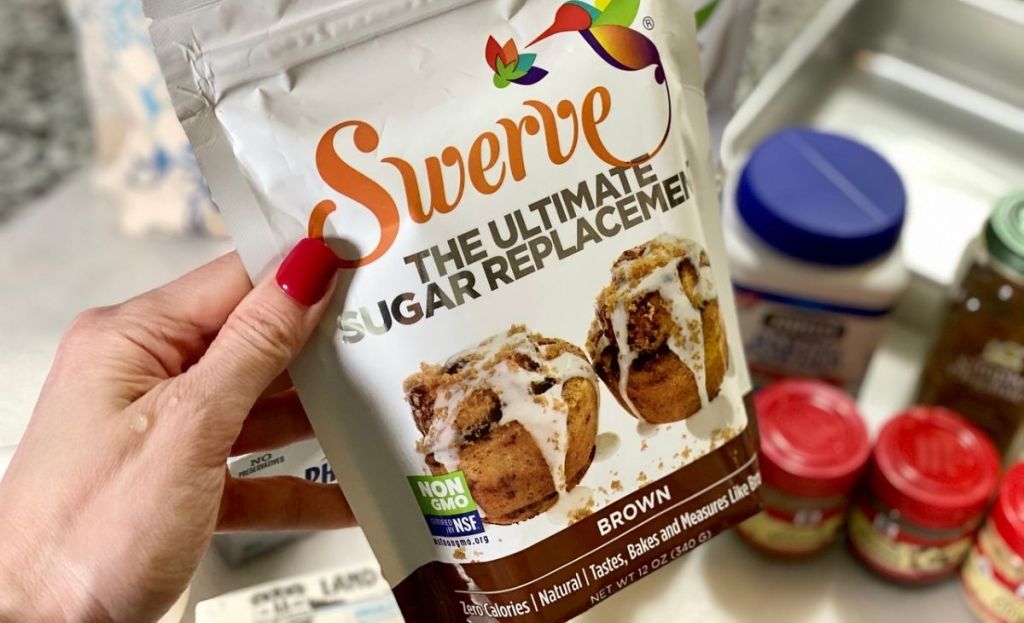
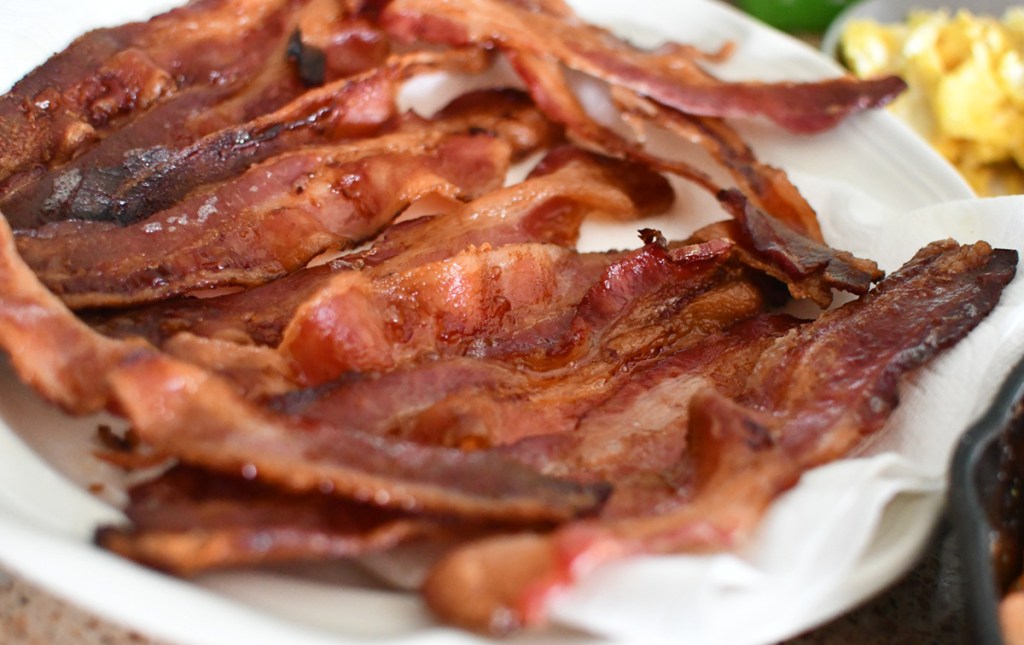

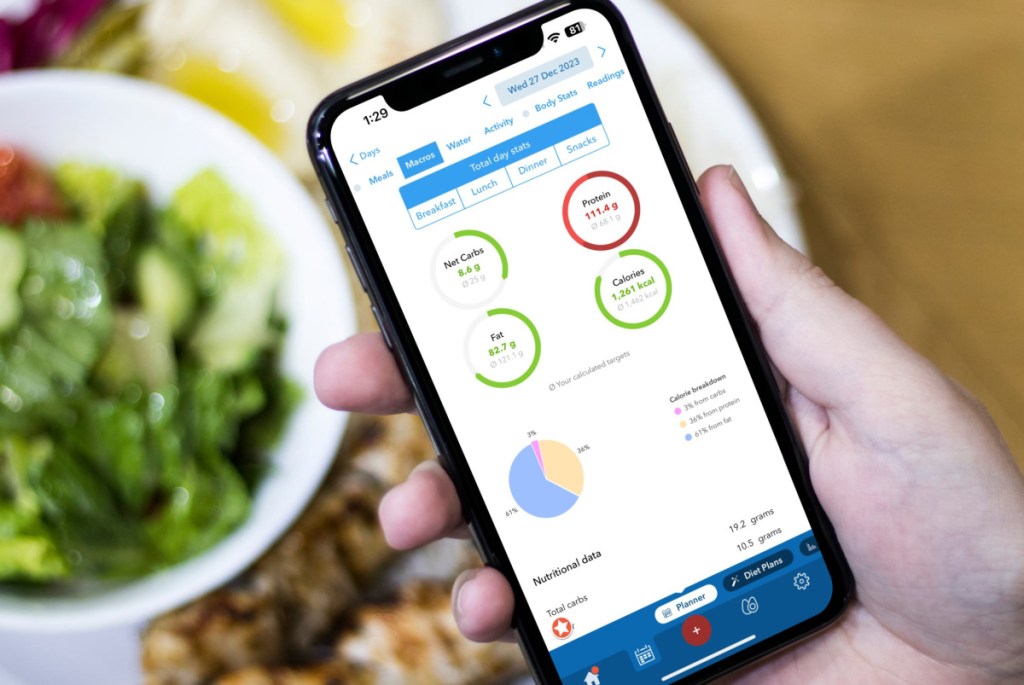

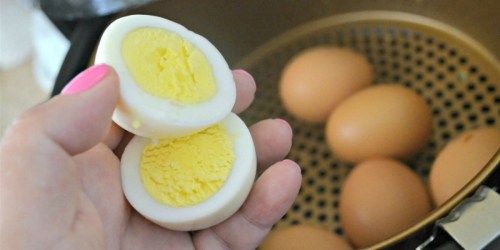
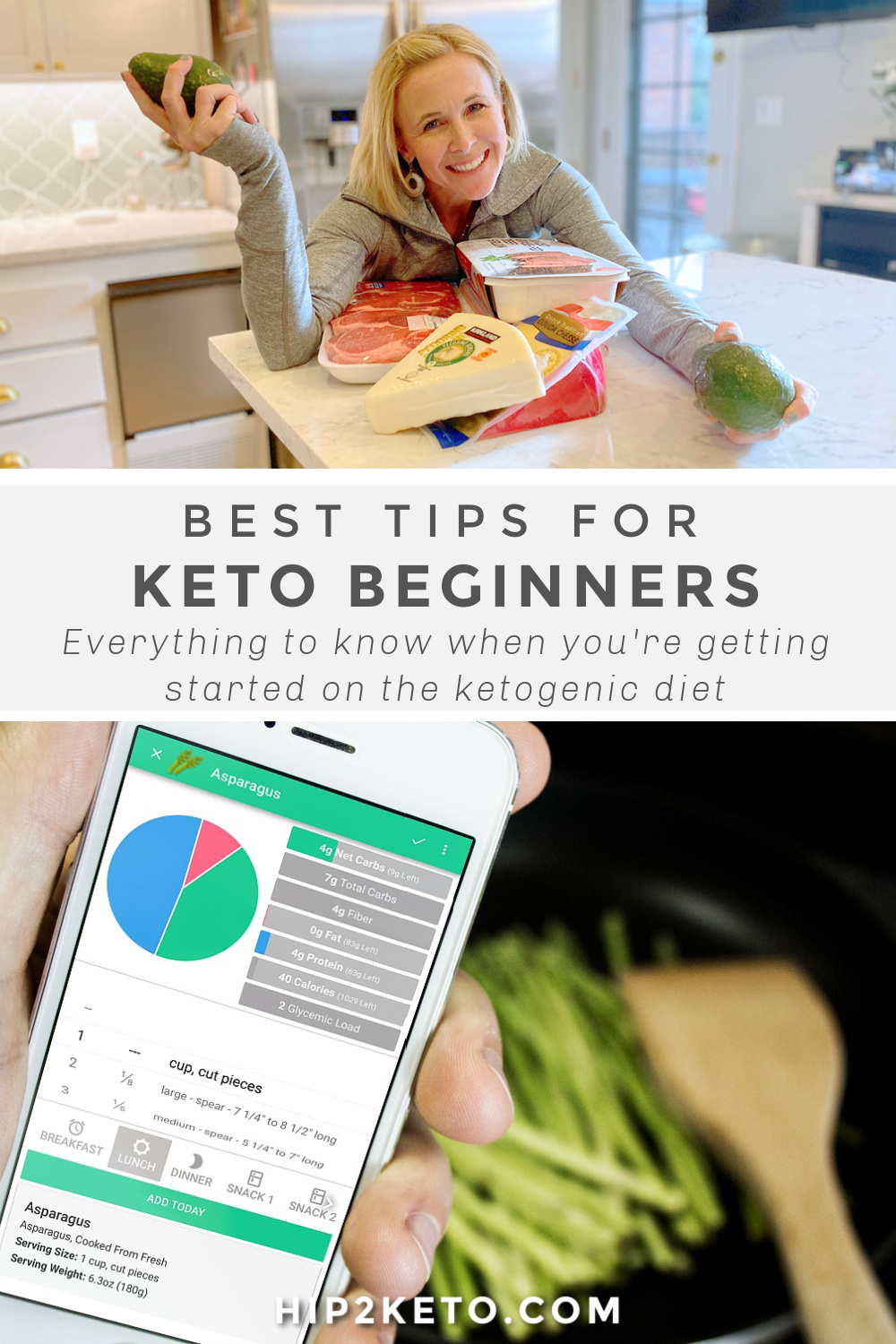
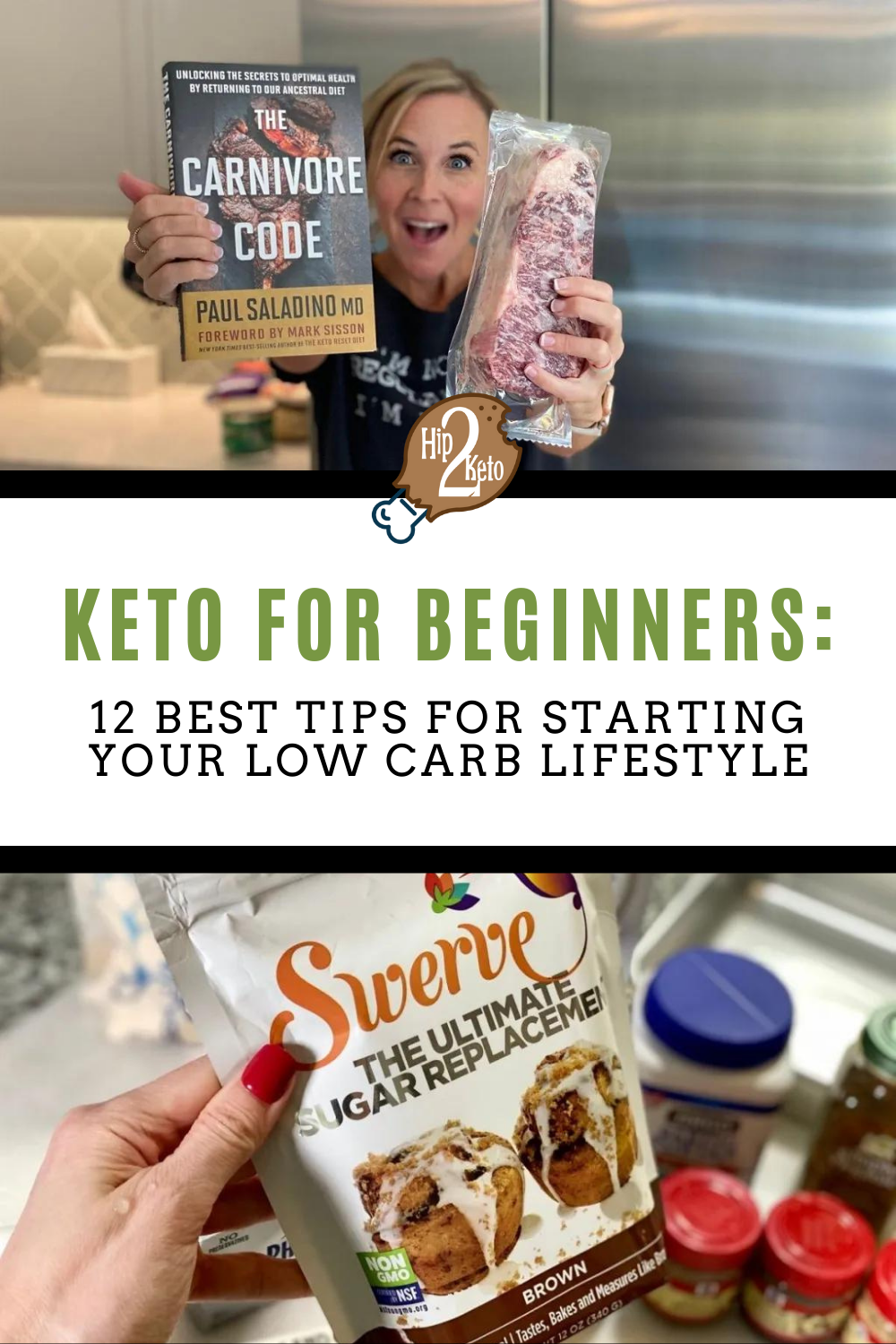
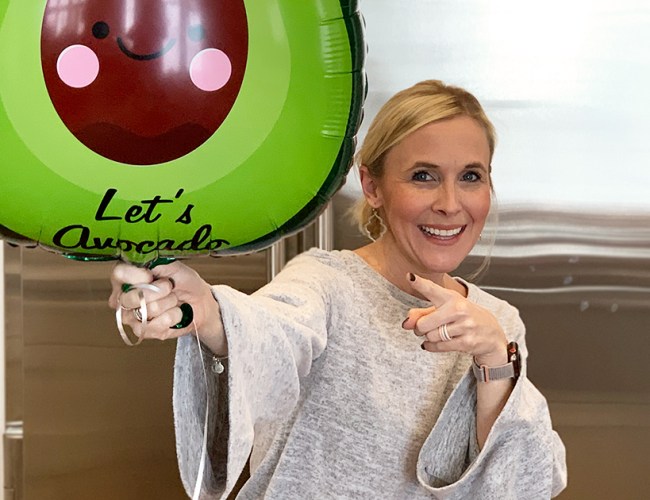
I just read where we are to avoid aspartame on keto! I didn’t know that, so have been indulging in diet cokes! What’s the reason for the aspartame?? Carbs?
Hey Steffany! Asparatame is keto-friendly; however, it’s not recommended due to it being artificial and there being more natural options that are also keto-friendly. Having diet cokes in moderation should still be OK, but if you have concerns, you could always check to see if you’re still in ketosis with a blood monitor. ❤️ One of our Hip sidekicks, Rachel, shared that when she was strict keto, she still indulged in Coke Zero and tested high in ketosis. 🙌 If you’re on the hunt for an alternative, be sure to check out this post for some other keto-friendly soda & sparkling water options we recommend.